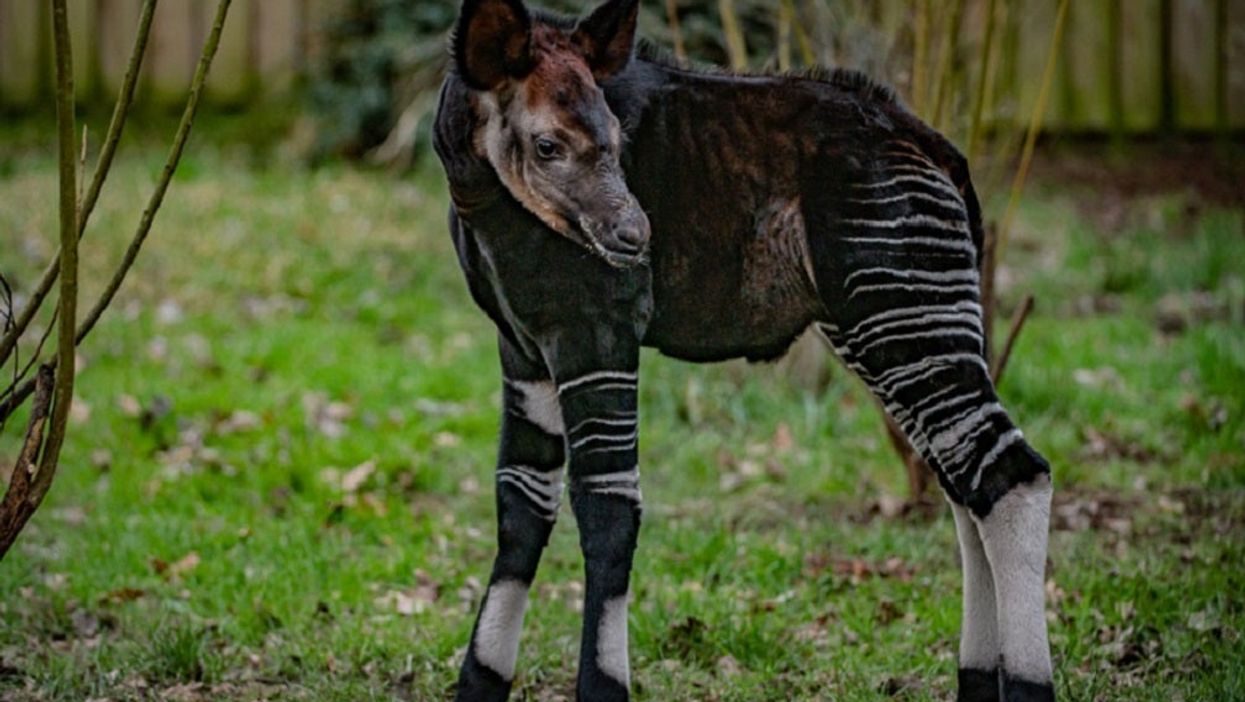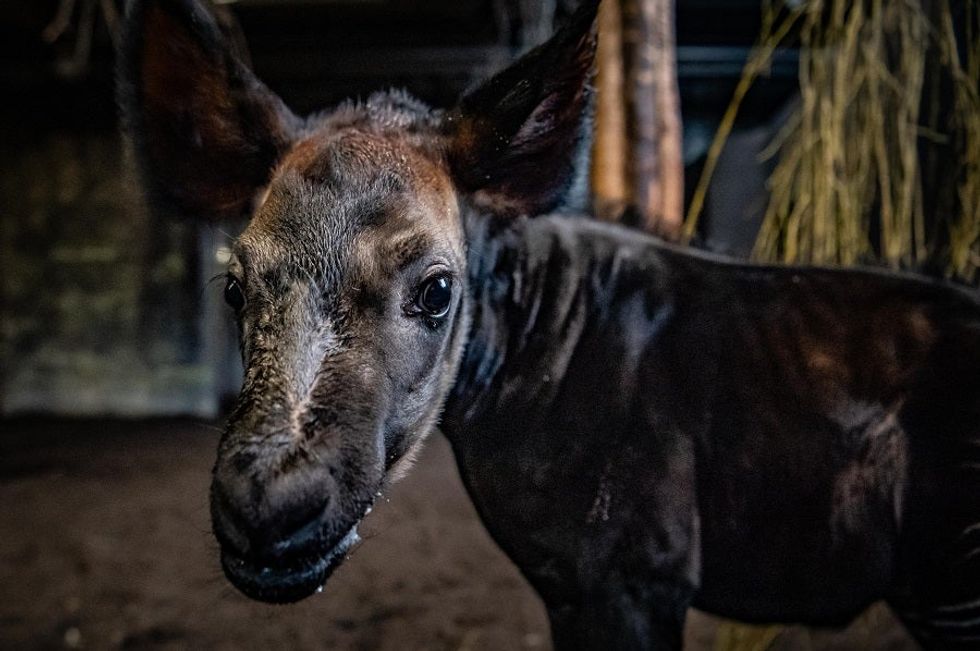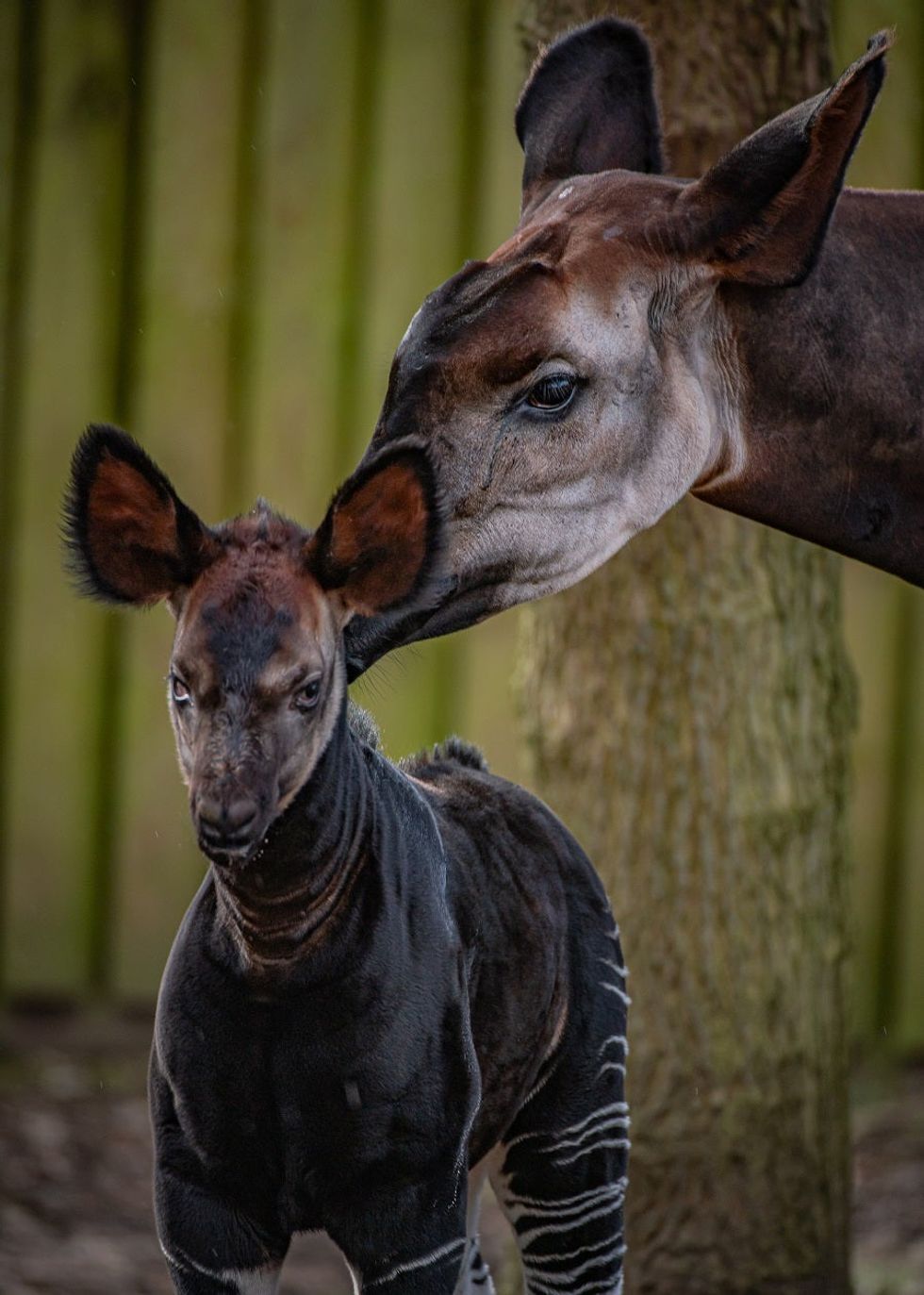
An endangered “African unicorn” has been born at Chester Zoo
Conservationists are celebrating after a female baby okapi, named Nia Nia, was born to seven-year-old mum K’tusha following a 14-month pregnancy.
The calf’s first wobbly steps were caught on the zoo’s CCTV shortly after the birth.
Okapi are nicknamed the “African unicorn” due to their shy and elusive nature. Discovered in 1901, they are the only known living relative of the giraffe.
Sarah Roffe, team manager of the okapis at the zoo, said: “The birth of an okapi calf is cause for great celebration – they are incredibly rare and incredibly special.
“Okapis are incredibly secretive animals and, for a little while following her birth, Nia Nia had not wanted to venture too far and had instead remained snuggled up in her cosy nest area, with mum returning to her every few hours to allow her to feed.
“But now she’s gaining in confidence every single day, she’s bouncing with energy and eager to explore.
“She’s a joy to watch – she’s all ears and long, spindly legs.”
😍 BABY OKAPI... IS A GIRL! 😍 Keepers have named the adorable calf, Nia Nia 💜 Just look at her little face... https://t.co/rHV3lHPEAB— Chester Zoo (@Chester Zoo) 1614860056
Zookeepers named the new animal in tribute to a small village which is in the centre of the Okapi Wildlife Reserve – where the zoo’s field partners are based – in the Democratic Republic of Congo the only country in the world where they are found in the wild.
The zebra-like stripes on the okapi’s back legs allow offspring to easily follow their mothers into dense forests in the DRC, keeping them hidden from predators. The species is officially listed as endangered.
Nick Davis, deputy curator of mammals at the zoo, said: “These gentle creatures have been heavily targeted by poachers in recent years, mainly as a result of the illegal bushmeat trade, which is growing across nearly all of its natural range – making conservation efforts to protect these animals really difficult.
“With only 76 okapis in zoos across Europe and with sightings in the wild becoming even less common than before, every birth is therefore vital to the endangered species breeding programme.
“The safety-net population in progressive zoos is protecting future conservation options for the okapi, so not only is Nia Nia’s arrival an important moment for us, it’s an important moment for the species.”















